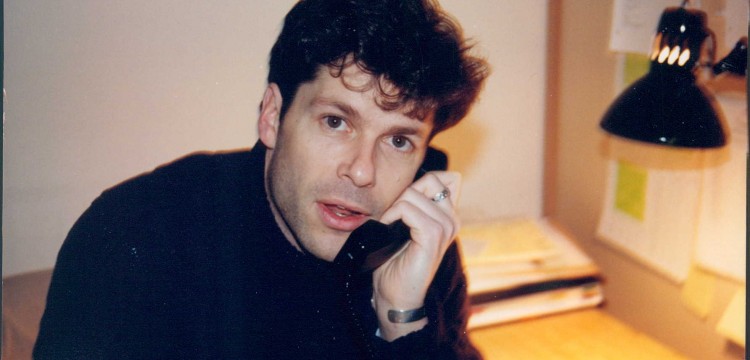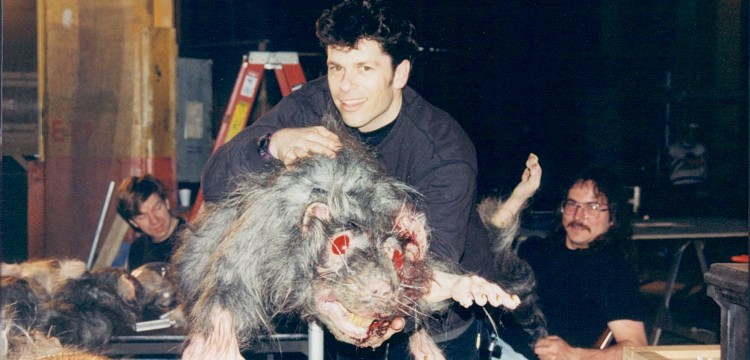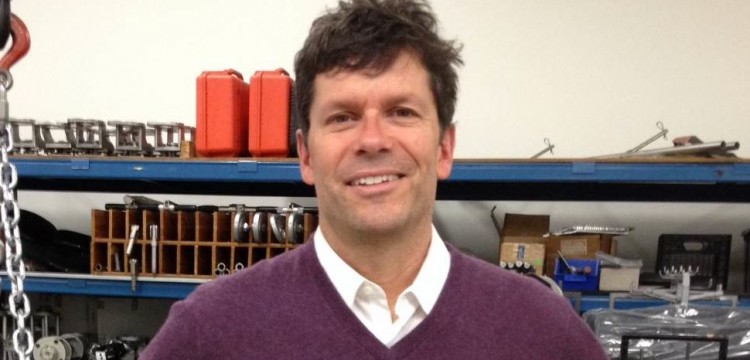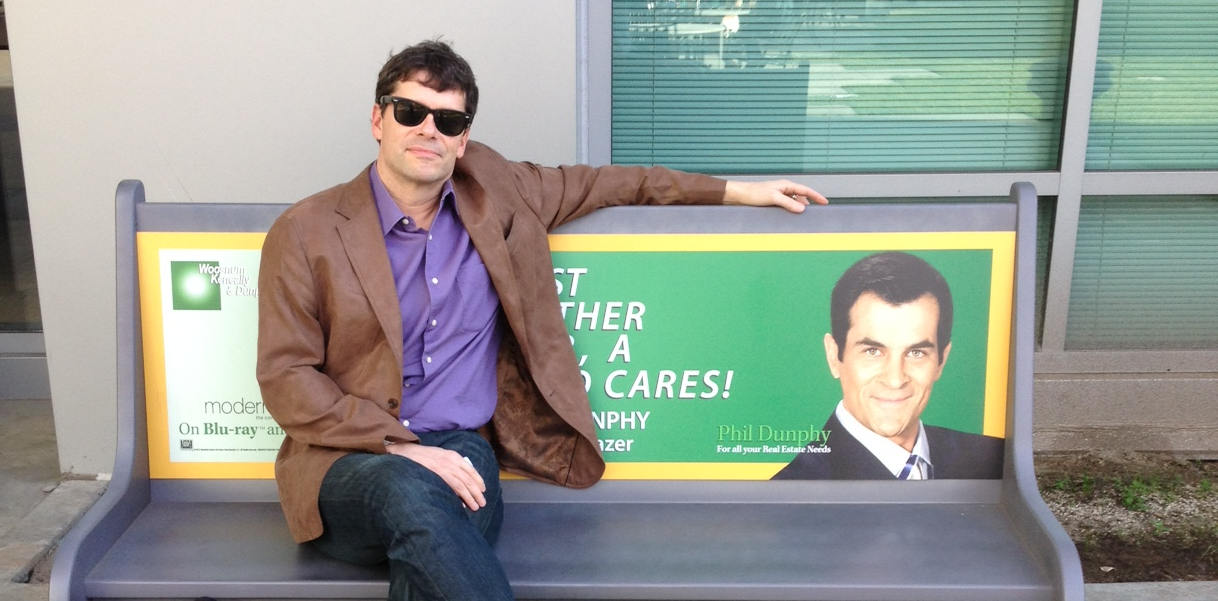David Hardy is an early supporter of Set Scouter and has been a source of wisdom on strategy. Having his broad knowledge of the Canadian media scene is only possible when you’ve done everything that he has! David has gone from production, to unions, to being Vice President of one of North America’s most successful production service companies. David is one of the most prominent and influential leaders in the Canadian media industry. It was an incredible opportunity to have such an in-depth conversation on what he does and what this means for the industry. David’s insights can save those starting out, or in the middle of their careers a whole lot of time.
Lidia: For somebody looking at the industry and thinking about possible careers that they could get started on, I bet this position sounds very appealing. I want to get a quick bio from you. I think you went from production to union, to Whites, right? Can you walk me through how it all happened?
David: Sure, well like many stories, I volunteered on a very good friend’s student thesis film, she was a student at the American Film Institute in Los Angeles. And I just had the wherewithal to get to Los Angeles and I slept on the living room floor of her and her husband’s apartment. Then I came back to Toronto, I was working in the non-profit sector, and she came back to Toronto and started working with Atlantis Films. Her first show out of the game was this series called ‘Traders’.

David Hardy: Assistant Production Coordinator on Traders, 1995.
So I was the assistant production coordinator, I got hired to work on that for the first cycle and that was it. I learned a lot very quickly and then it was a matter of finishing that job and knocking on doors to try and accumulate a bit of a resume. Ultimately, I was a production coordinator on, ironically, a show called “Goosebumps” that Paul Bronfman’s company, Protocol Entertainment produced. We met very briefly on that show. I then kept working and at the end of 2000 I finished a couple of years on this series called “The Famous Jett Jackson” and didn’t have a job anymore. I was approached by some union members that I knew quite well from working in the industry, some NABET members who said that they had some positions opening up and asked if I’d consider. I didn’t think much of it at the time, I was a member of a rival organization…
Lidia: IATSE?
David: IATSE, but when I was offered an opportunity to go over and work at NABET, I had very small twin daughters and the thought of regular pay check, regular hours, and paid vacation sounded pretty good. Quite honestly, it was a pay cut to do it, but it became a fantastic position for me because it gave me stability and I got to know a lot of producers very quickly. That certainly transferred into my job at Whites and gave me a solid network.
When I was offered the opportunity by Paul to come over to Whites, it’s embarrassing how quickly I said yes. Just a chance to move into a more entrepreneurial environment was something that I was really looking forward to and I’ve been greatly rewarded as a result.

On set of from “Trilogy of Terror 2” (1996). Incidentally, I received a residuals cheque to the tune of $14.02 last week for Trilogy, from which I had 2 principal puppeteer days.
Lidia: Could you tell us a little bit about your position at Whites and what it entails?
David: As Vice President in Industry and Government relations, I have two primary focuses. One is: to work with industry associations across the country (5 different provinces, 5 difference provincial governments and 5 different provincial tax credits systems). It’s extremely important to all of our operations that these tax regimes remain in place, and are strengthened. That entails working with the industry associations to liaise with government at the provincial and federal level, to ensure that they’re really up to date and aware of the economic impact that the industry is making in their communities. So, to a certain extent, it’s playing tight defence in making sure there is nothing done to affect the tax credits, because as we saw if the province tampers with it, or remove it, the industry contracts and/or totally evaporates.
And the other focus is: working to demonstrate to our clients that there is added value in working with Whites. It’s not just about renting equipment, it’s knowing that we are active in protecting the landscape that directly relates to their abilities to get work. We’re trying to bring in an added value to our clients through our advocacy.

Lidia: I’m assuming that the position you began with is not the same as what you’re doing now?
David: No, I began on the sales side, a kind of traditional sales of rentals, getting producers to sign on with our company, which is very much what I was doing at NABET. I’m not sure that was going to keep me too enthusiastic. I would’ve certainly made the best of it and we’ve got some great people at White’s, but thankfully I think Paul recognized the need to have the company represented on an external basis in a different way that it had been represented in the past. Paul concocted this role, and it couldn’t have been more timely for me and I think and I hope, the company. It has given us a bit of a different profile nationally. At the beginning of the year, we did a big fundraiser here in the spring for the Liberal Party just before the election, had the Premier to our shop, we had the Finance Minister, we’ve had the Minister of Culture out here a number of times. They’re very familiar with our operation, its scope and scale, which is exactly what I want from my position. To be able to highlight that despite a certain element of transience to the film industry, it’s become much more rock solid, full time employment In Ontario in the last 5 years. We want them to really gage the fact that it’s a real business, employing a lot of Ontarians and a lot of Canadians and contributing a lot to the GDP.
Lidia: Listening to you talk about this is incredible. It’s so similar to the kind of impact Set Scouter hopes to contribute as well. Looking at the industry at large, what are some industry trends that you’re seeing, that people should be paying attention to as they create their content?
David: Well, certainly crowd sourcing is the big thing over the last 3-5 years. Kickstarter and Indiegogo, or your flavour of the month crowdsourcing platform, has become a way in which a lot of low budget and real indie types are getting money into the system. We know that Spike Lee is doing crowd sourcing and big name Hollywood and American film and television producer are getting into it as well.
CineCoup (a Canadian film online “Accelerator”) is kind of an off-shoot of that, but it’s come with a heightened series of a requirements. It’s become more of an online, “build an audience” contest at the same time as raising money. I think it’s a really unique perspective, because what is going to plague Canadian production is they lack the audience.
There is still the Telefilm route and the Canadian Media Fund, if you’re creating television, but the limitations there are that you really have to have a track record or have to partner up with somebody that does. So, it’s a little harder to find a financing “back route”, given that the distribution mechanisms have changed so much. I could go out and shoot my weekend adventures and post it to YouTube and it’s out there and somebody could see it, and somebody could say “I love what you did, I want to get involved, I want to finance it to make it a little bit bigger, give me some of the rights…” I think since the distribution model has changed very rapidly, it has put pressure on the traditional distributors.
This is obvious with the Netflix model. The distribution of Crouching Tiger, Hidden Dragon Sequel on Netflix and in IMAX on the same day – that’s a first. And then there’s Adam Sandler, starring in and production his next 4 feature films with exclusive Netflix distribution. So that’s a little terrifying for the older crowd I think that are used to finding a distributor and selling all the territories and getting the minimum guarantee. But then again, talking to a few of the old producers that I know who are engaged in this new model, I think it’s breathed a bit of life into a lot of companies. They were typically standing in line, waiting for either financing from Telefilm or CMF and looking down the ever shrinking list of national distributors with whom they could work. I think it’s an expanding time, it’s terrifying but there are opportunities presenting themselves that nobody could have dreamed of.
Lidia: Speaking of crowdsourcing, it’s quite common among web series funding. Web series in general are the new “alternative” kid on the block, who mostly don’t have as much available to them as traditional productions. Looking at your clients list, I’m sure you’ve seen a lot more web series producers coming to you and renting equipment. So what are your thoughts on that?
David: Well, probably 4 years ago now, we saw a bit of a trend in low budget and web based content being created and came out with this product called the ‘viral van’ which I think you may have seen?
Lidia: Yeah, I’ve definitely rented that one for the discount that it offers.
David: Yeah, well that was done with the idea that producers that are creating content for the web are on very tight budget. By allowing for a very affordable daily rental of basically everything you would need, lighting and grip-wise, to mount a smaller production. It could go bigger than a web series, to everything in between, right down to one day shoots and run and gun 3 person crew. Thankfully, right now, we’ve got a very interesting mixture between tentpole feature films from Hollywood and high-end television series both service and domestic. We’ve got a lot of lower budget, run and gun internet based type stuff that we’re doing as well. So we’ve got a really good broad, diversified mixture of clientele right now, which is the way it should be. If the tentpole features were to go away, that’s a big problem. I don’t think any big supplier of any service in the film industry would be prepared for a very quick exit of the meat and potatoes big budget, rent half your equipment type of productions.
Having a broad scope of projects is the best thing for us. If we only had big feature films, we would feel that we weren’t doing our required bit to help sustain the next generation of film makers coming up the pipe. And if we had only next generation film makers coming up the pipe, we’d need a lot of ’em to keep the lights on, which affects the ability to rent all our stuff.
Lidia: Lastly, I just wanted to get your thoughts on Set Scouter. Many new technologies are taking face to face, relationship-driven processes and putting them up online. I would love your thoughts on new technologies that are coming about in the media industry today.
David: Well, timeliness has always been a major component of the film industry. Things change so rapidly that you’ve got to be able to adjust and adapt very quickly. I think Set Scouter is a perfect example of the interactivity that will take the industry to another level. Everybody knows airbnb now, and airbnb has gone from nothing to this monster, in six years. It’s grown because it’s a great idea and its time has come. The fact that Set Scouter has grown as quickly as it has, clearly indicates that the market absolutely desires a product like this, so I think you guys have tapped in to a need that has been unfulfilled. I can see this like a spider web just growing and growing out, just expanding to more services and some areas may be that weren’t anticipated initially. As you go and as the industry changes, I think it’s a fantastic application.


